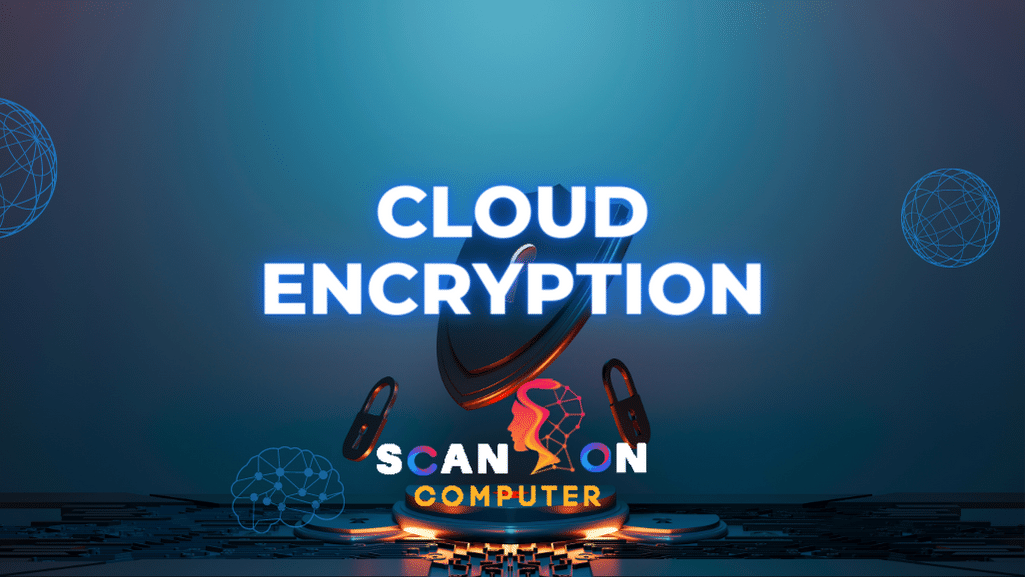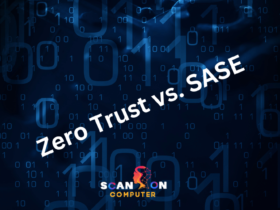Cloud Encryption transforms data into unrecognizable strings of ones and zeros for maximum protection against risks. It is an integral security measure that should not be overlooked.
Most organizations use encryption to meet compliance requirements and safeguard their intellectual property, but which type is best? There are various options to consider here – let’s look at each in turn:.
What is Cloud Encryption?
As your data is encrypted in the cloud, cybercriminals cannot read or use it – an essential aspect of business cybersecurity strategies aimed at mitigating attacks while discouraging employees from selling or disclosing company secrets.
Many cloud storage providers provide encryption services as part of their storage solutions, including data in transit and at rest. Different encryption methods may be applied depending on the data type; some methods involve file-level encrypting while others can encrypt client-side or server-side.
Key management systems are at the core of cloud encryption. Cloud storage providers should offer customers a system to generate and store their own encryption keys – either within software keys, HSM clusters or externally – if stolen keys were to gain access to data stored therein. Before selecting your cloud provider, take time to explore their security practices as well as encryption offerings so they meet your business needs.
How Does Cloud Encryption Work?
Cloud encryption encrypts organizational data into unreadable ciphertext, protecting it from being intercepted and exploited by hackers who could access sensitive data. Furthermore, cloud encryption helps organizations meet different regulations or standards such as GDPR or HIPPA more easily.
Cloud encryption can be easily implemented using software that encodes your data prior to uploading it, making this a convenient solution for organizations with limited budgets or those wanting to avoid hiring in-house experts.
An alternative method of protecting cloud data involves employing an asymmetric algorithm, which uses two separate keys for encryption and decryption. This approach offers greater security because deciphering messages requires possessing both of them; without these private keys it would be impossible.
Management of encryption keys is another critical element, involving various security practices like logging and full lifecycle supervision. Keys should also be safely stored, backed up off site, and require multi-factor authentication to gain access. If using cloud storage for these purposes, ensure they adhere to these best practices to prevent breaches in security.
Which Cloud Platforms are Encrypted?
As companies migrate data and applications to the cloud, it is critical that sensitive information remains safe from unauthorized access. Without encryption, hackers could steal or alter sensitive information to commit fraudulent acts; with cloud encryption they transform plaintext text into unintelligible ciphertext preventing this type of abuse from occurring.
Some cloud providers offer their own cloud-native encryption service, which protects data during transfer or synchronization with storage systems. Others may employ variations such as customer-managed keys, bring-your-own keys or hold-your-own keys in order to limit potential breaches should one arise in case their provider becomes compromised.
Most often, encryption is built directly into cloud platforms and does not require additional software or hardware to function effectively. Regardless, it is crucial that any solution undergoes rigorous compatibility and integration testing prior to selecting it for your business environment and security layers you wish to implement.
Benefits of Cloud Encryption
Data encryption is one of the primary defenses organizations can employ to protect their own information and that of their customers, in compliance with applicable security and privacy norms and laws.
Effective cloud encryption can protect data breaches by converting plaintext information to unreadable ciphertext that renders it indecipherable by cybercriminals, making intercepted transmission or rest data irrelevant. Furthermore, pre-encrypting files before they sync with cloud services makes it more difficult for attackers to gain access to files if they gain entry through cloud infrastructure service providers.
At the forefront of choosing a cloud encryption solution is its capacity to restrict server-side data access only to authenticated users. Reputable services offer strong authentication measures like multi-factor identity management (MIM) and federation with your organization’s existing identity provider, while hold-your-own-key (HYOK) variant provides extra protections by isolating master encryption key from stored data; this helps ensure its protection from employees or authorities as well as allows customers accessing their own data if required.
When Do You Need Cloud Encryption?
Cloud encryption solutions provide essential cybersecurity measures, whether to increase data privacy, enable remote work or meet regulatory compliance. They encrypt your information before uploading it into the cloud, making it unintelligible to anyone without the key – enabling companies to take full advantage of cloud computing while protecting sensitive information against cyberattacks.
Most credible cloud service providers (CSPs) offer basic security measures, including encryption. However, for your own protection and to prevent data from falling into the wrong hands it’s advisable to take additional measures by encrypting it before uploading it to the cloud.
There are two primary forms of encryption: symmetric and asymmetric. Symmetric encryption uses one key for all encryption/decryption operations while asymmetric uses both public and private keys to protect information securely.
Asymmetric encryption provides superior data security; however, its implementation and maintenance may be more challenging. Therefore, it’s essential that you identify your security needs, select a CSP offering the level of encryption you require, and review any terms and conditions of contracts to make sure there aren’t any provisions that put your data at risk.
Importance of Cloud Encryption
Cloud encryption ensures that sensitive information in the cloud remains private, preventing it from being breached or stolen by cybercriminals and helping organizations comply with security and privacy norms and regulations.
At its core, cloud encryption serves to protect business data from unauthorized access and reduces risk for significant financial losses in case of hacker attack or natural disaster.
When selecting a cloud encryption provider, it’s vital that you read their terms and conditions closely. Some cloud service providers claim ownership of client data while refusing to share encryption keys in the event of a breach – this poses a severe threat to cybersecurity that should be avoided at all costs.
Businesses should opt for data encryption solutions that offer customer-managed encryption keys as this will allow for control over who can access their information in case of security breach.
Key Methods Used in Cloud Encryption
Cloud encryption works by scrambling files into unrecognizable strings of ones and zeros that are useless to anyone without the key – usually managed by software applications – rendering any stolen or accessed information useless for use by unauthorized parties.
Even though every reliable cloud service provider (CSP) provides basic data security measures, businesses must take additional measures to protect data. One such method is cloud encryption which protects both in transit and at rest data.
This technology involves two primary approaches, known as symmetric and asymmetric encryption. Symmetric encryption uses the same key for both encryption and decryption; this may make deployment quicker and simpler, yet less secure since anyone with access to its key could decode data more easily.
Asymmetric encryption employs two keys-public and private authentication tokens-to encrypt or decode data, using them mathematically related but distinct keys for encryption or decryption purposes. To increase security further, this requires multiple steps when reading or writing data to read/write in either direction, making it harder for hackers and malicious actors to attack a business.
Final Thoughts
Cloud encryption poses several key challenges to both consumers and vendors alike, the primary one being protecting keys from falling into hackers’ hands.
Another major hurdle lies in keeping data safe during transport, whether by encrypting it before it goes into the cloud, or through end-to-end encryption services that encrypts it at all stages (end-to-end encryption).
Cloud encryption also poses unique security challenges and requires strong protocols and measures, including two-factor authentication, server protection and ransomware protection.
While cloud services do provide basic security measures, businesses must implement additional safeguards. By employing appropriate encryption models and key management procedures, businesses can ensure their sensitive data remains protected and make it harder for hackers to breach into the cloud and access their sensitive information for malicious use.











Leave a Reply
View Comments